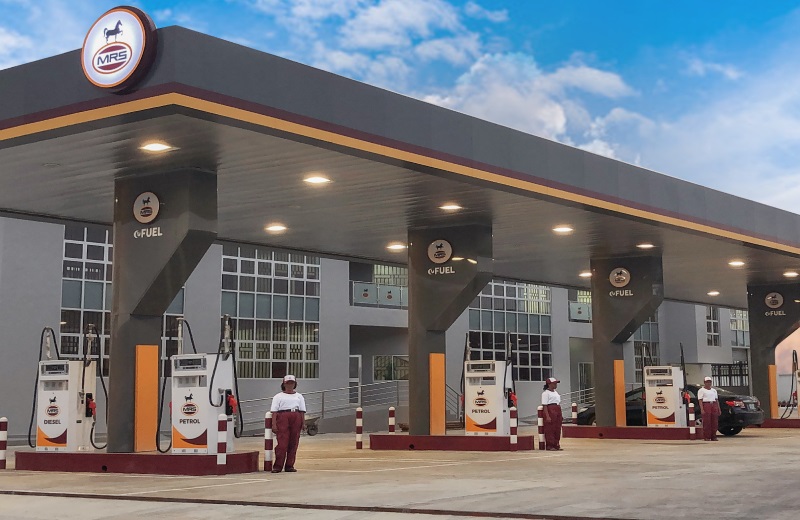General
FG to Rehabilitate 10 Roads for N169.7bn

By Modupe Gbadeyanka
As part of federal government’s Economic Recovery and Growth Plan (ERGP), 10 road projects across the country have been pencilled down for rehabilitation.
The roads, which is expected to create not less than 2,750 direct jobs, with over 90 percent to be taken up by Nigerian workers, will improve the country’s transportation infrastructure and restore nation’s road network. The roads, when completed, will open up settlements, provide access for evacuation of goods and services and improve socio-economic lives of the beneficiary communities.
Minister of Power, Works and Housing, Mr Babatunde Fashola, who confirmed this development, said the Federal Executive Council (FEC) has already approved the award of N169.74 billion contracts for the 10 roads.
He said the approval was sequel to a memorandum presented to the council by him on May 2, 2019 and that it covers the Rehabilitation of the Umuahia (Ikwuano)-Ikot Ekpene Road, Umuahia, Umudike in Abia State, Rehabilitation of Calabar-Oban-Ekang Road (Section1) in Cross River State, Construction of Yola-Fufore-Gurin Road in Adamawa State, Rehabilitation of Ado-Ekiti –Igede-Aramoko-Itawure Road in Ekiti State and Rehabilitation of Funtua-Dandume-Kaduna State Border Road in Katsina State.
Others, according to the memorandum, are the rehabilitation of Makurdi-Gboko-Katsina-Ala Road (Yandev-Katsina-Ala Section) in Benue State, Rehabilitation of Old Enugu-Onitsha Road (Opi Junction-Ukehe-Okpatu-Aboh Udi-Oji to Anambra Border), Rehabilitation and Dualization of the 74KM (Approximately) Aba-Ikot Ekpene Road in Abia/Akwa Ibom States, Construction of 4 kilometre Township Road in Gaya Local Government Area of Kano State and Rehabilitation of Billiri-Filiya-Taraba State Border Road in Gombe State.
While the Umuahia (Ikwuano)-Ikot Ekpene Road is awarded to Messrs Hartland Nigeria Limited/ Raycon and Company Nigeria Limited in the sum of N13,296,283,958.68 with a completion date of 48 months, the Rehabilitation of Calabar-Oban-Ekang Road (Section1) in Cross River State is awarded to Messrs Setraco Nigeria Limited in the sum of N27,781,851,866.55 with a completion date of 24 months while the construction of Yola-Furore-Gurin Road (approximately 56KM) is awarded to Messrs Wiz China Worldwide Engineering Limited in the sum of N13,643,670,884.81 with a completion date of 12 months.
The Rehabilitation of Ado-Ekiti–Igede-Aramoko-Itawure Road in Ekiti State (35KM approximately), according to the memorandum, is awarded to Messrs Deux Projects Limited/Hitech Construction Company Limited at N14,838,220,269.00 with a completion period of 30 months, while the Rehabilitation of Funtua-Dandume-Kaduna State Border Road in Katsina State is awarded to Messrs Rabash Enterprises Nigeria Limited/Afdin Construction Limited in the sum of N9,887,040,586.50 with a completion period of 24 months.
The memorandum also shows that while Messrs Rockbridge Construction Limited will rehabilitate the 43 Km (approximately) Makurdi-Gboko-Katsina-Ala Road (Yandev-Katsina-Ala Section) in 24 months at the cost of N11,892,018,600.00, Messrs Arab Contractors O.A.O Nigeria Limited will rehabilitate Old Enugu-Onitsha Road (Opi Junction-Ukehe-Okpatu-Aboh Udi-Oji to Anambra Border) (Approximately 90Km) in 24 months at the cost of N31,946,055,289.93 and Messrs CGGC Global Project will rehabilitate and dualize the Aba-Ikot Ekpene Road in 24 months at the cost of N30,649,735,111.38.
Also included in the award are the construction of a 4 kilometre Township Road in Gaya Local Government Area of Kano State by Messrs Birak Engineering & Construction Company Limited in the sum of N1,755,086,798.85 with a completion period of 12 months and the rehabilitation of Billiri-Filiya-Taraba State Border Road by Messrs Triacta Nigeria Limited to be completed within 24 months in the sum of N14,048,396,236.88.
Stating that his Ministry, towards the realization of Federal Government’s objectives of restoring growth and investing in the people, decided to initiate the new road reconstruction and rehabilitation projects in some states of the Federation to open up settlements, provide access for evacuation of goods and services as well as improve the socio-economic lives of the people within the stretch of the different communities in the project areas, Fashola said the 50KM Umuahia (Ikwuano)-Ikot-Ekpene Road would create between 180 to 200 jobs with 90 per cent of the jobs for Nigerians and 10 per cent for expatriates.
According to him, while the rehabilitation of the approximately 60 Km Calabar-Oban-Ekang Road (Section1) in Cross River State, will generate between 400 and 500 jobs with 40 per cent of the jobs for Senior Nigerians and 100 per cent for intermediate workers, the construction of Yola-Furore-Gurin Road in Adamawa State, will generate no less than 300 jobs with 90 per cent reserved for Nigerians and 10 per cent for expatriates.
Also while 200-250 workers will be employed in the rehabilitation of Ado-Ekiti –Igede-Aramoko-Itawure Road in Ekiti State with 90 per cent of the jobs to be handled by Nigerians and 10 per cent by expatriates, the rehabilitation of Funtua-Dandume-Kaduna State Border Road in Katsina State will generate 200 jobs with 80 per cent for Nigerians and 20 per cent for expatriates.
In the rehabilitation of Makurdi-Gboko-Katsina-Ala Road (Yandev-Katsina-Ala Section)in Benue State, according to the Minister, 100 workers will be employed with 90 per cent of them Nigerians and 10 per cent expatriates while 400-500 workers will be employed in the rehabilitation of Old Enugu-Onitsha Road (Opi Junction-Ukehe-Okpatu-Aboh Udi-Oji to Anambra Border) with Nigerians constituting 90 per cent while expatriates will make up the remaining 10 per cent of the work force.
The rehabilitation and Dualization of Aba-Ikot Ekpene Road in Abia/Akwa Ibom States will, according to the Minister, generate 200 jobs with Nigerians taking 80 per cent of the jobs and expatriates take 10 per cent. And also while 200 workers will be employed in the construction of the 4 kilometre Township Road in Gaya Local Government Area of Kano State with 10 per cent of the jobs to be done by expatriates and 90 per cent by Nigerians, the rehabilitation of Billiri-Filiya-Taraba State Border Road in Gombe State will generate 300 jobs with 90 per cent for Nigerians and expatriates making up the remaining 10 per cent of the workforce.
While itemizing the Scope of Works to be covered in each of the Projects, the Minister also gave extensive details of the procurement processes which began under the 2018 Appropriation with newspaper advertisements in July 2018 and culminated in the certification and issuance of a Due Process Certificate of “ No Objection” for each of the 10 Projects by the Bureau of Public Procurement (BPP).
General
NIMASA Mulls Expansion of Nigeria’s Deep Blue Project

By Adedapo Adesanya
The Nigerian Maritime Administration and Safety Agency (NIMASA) is considering expanding the country’s Deep Blue Project due to its perceived success, with impact felt across the Gulf of Guinea, where it has helped to reduce piracy massively and gained global recognition, to ensure sustainability and greater impact.
The Director General of NIMASA, Mr Dayo Mobereola, made this known during his strategic visit to the Chief of Naval Staff, Vice Admiral Idi Abass, at the Naval Headquarters, Abuja.
Mr Mobereola, while commending the Navy for the harmonious collaboration with NIMASA and congratulating the CNS who had previously served as Maritime Guard Commander under the agency, called for continued partnership with the security outfit under his watch.
“It is important that we continue our partnership and strengthen our relationship. Our purpose here is to congratulate you and to discuss the benefits of the Deep Blue Project, how to sustain it, expand it, and increase its impact on the Gulf of Guinea.
“We are confident that we have the backing of the President, the Minister of Marine and Blue Economy, and the Nigerian Navy, hence, we are working towards presenting our proposal on the necessary improvements to be undertaken,” he stated.
The DG acknowledged the importance of the Deep Blue Project, noting that its impact resonates globally, with the International Maritime Organisation (IMO) commending it.
“The Deep Blue Project is vital, and countries around Africa and some other parts of the world are coming to copy our model. The IMO is asking how a civilian organisation was able to achieve this feat. It is therefore important that we continue to collaborate and do even better for greater sustainability,” he said.
Mr Mobereola also congratulated the Chief of Operations, Nigerian Navy, Rear Admiral Musa Katagum, who is joining the NIMASA governing board as the Navy’s representative.
On his part, the Chief of Naval Staff, Vice Admiral Idi Abass, while welcoming the NIMASA DG and his delegation, commended the Agency for the good work it is doing in the maritime sector and its continued support to the Nigerian Navy.
“Part of my command’s objective is to work in synergy with other agencies to achieve our goal as a country. We complement each other. We have no option but to collaborate and synergise.”
The Naval chief noted some concerns, which include the MoU between NIMASA and the Nigerian Navy, which has been in place since 2007 and should be revisited.
He also solicited for the Navy to be called upon for such needs as vessel repair, hydrographic surveys and chartings, stating the Navy’s capacity in handling such tasks.
The CNS also canvassed NIMASA’s assistance for wreck removal, particularly as the Navy gears towards its 70th Anniversary, where it looks forward to welcoming foreign ships.
He further commended NIMASA for its recent launch of the Cabotage Vessel Financing Fund (CVFF) Application Portal, noting that the organisation has come a long way in its planned disbursement of the fund.
General
Ikeja Electric Fumes Over Impropriety Allegations Against CEO, Chairman

By Adedapo Adesanya
Ikeja Electricity Distribution Company has described as malicious and misleading a widespread publication currently circulating online alleging impropriety about its chief executive, Ms Folake Soetan, and its board chairman, Mr Kola Adesina.
The management of the DisCo noted that a publication attributed to ‘Nigerian Global Business Forum’ defamed its CEO and the chairman of the IKEDC board.
The company said, “The publication, attributed to yet to be verified individuals and organisation, is clearly intended to misinform the public and bring the company and its leadership into disrepute through fabricated claims, the DisCo observed.”
Ikeja Electric noted that its investigation so far revealed that the ‘Nigerian Global Business Forum’ is an unregistered organisation with no recognised legal or corporate existence locally or abroad.
According to the energy firm, the signatories, “Dr Alaba Kalejaiye” and “Musa Ahmed,” have no verifiable professional credentials or established public profiles, and the publication contains false and misleading statements regarding Ikeja Electric’s operations, safety record, and financial practices.
The organisation said it had instructed its legal advisers to conduct a thorough forensic investigation and to initiate defamation proceedings against the authors, publishers, and any persons or entities found responsible for sponsoring or disseminating this malicious publication.
Ikeja Electric said it operates within a strict framework of accountability and remains committed to transparency and service improvement, warning it will not tolerate coordinated disinformation campaigns aimed at undermining public confidence and tarnishing its corporate integrity.
“Ikeja Electric remains steadfast in its mandate to deliver reliable power while upholding the highest standards of corporate governance and customer excellence.
Members of the public are advised to disregard the false publication in its entirety,” it said in a statement.
General
PMS May Sell N1,000 Per Litre if Marketers Adopt Costly Coastal Loading

By Aduragbemi Omiyale
Nigerians may be forced to purchase premium motor spirit (PMS), commonly known as petrol, for almost N1,000 per litre if marketers choose to go for the costly coastal evacuation and not the cheaper gantry loading, the Dangote Petroleum Refinery has cautioned.
Though the company clarified that marketers were free to choose their preferred mode of evacuation, it emphasised that the implication of adopting the coastal loading was that consumers would pay more for the product because of the extra costs.
According to Dangote Refinery, “Coastal logistics can add approximately N75 per litre to the cost of petrol, which, if passed on to consumers, would push the pump price of PMS close to N1,000 per litre.”
The firm noted that its “world-class gantry facility” has 91 loading bays capable of loading up to 2,900 tankers daily.
Operating on a 24-hour basis, the facility can evacuate over 50 million litres of Premium Motor Spirit PMS, 14 million litres of Automotive Gas Oil (diesel) and other refined products each day, it added, urging marketers and policymakers to prioritise logistics choices that support price stability and consumer welfare.
It stressed that direct gantry evacuation eliminates port charges, maritime levies and vessel-related costs that do not add value to end users, helping to optimise costs, improve distribution efficiency and support price stability.
“Reliance on coastal delivery, particularly within Lagos, may introduce avoidable costs with material implications for fuel pricing, consumer welfare and overall economic wellbeing,” the company stated in a statement.
Based on Nigeria’s average daily consumption of about 50 million litres of PMS and 14 million litres of diesel, the refinery estimated that sustained dependence on coastal logistics could impose an additional annual cost of roughly N1.752 trillion. This cost, it said, would ultimately be borne either by producers or Nigerian consumers.
The refinery also renewed calls for coordinated investment in pipeline infrastructure nationwide, arguing that functional pipelines linking refineries to depots would significantly cut distribution costs, improve supply reliability and strengthen national energy security.
It said domestic refining has already delivered measurable benefits to the Nigerian economy. Since the commencement of operations, the price of diesel has fallen from about N1,700 per litre to N1,100 and currently trades between N980 and N990. Similarly, PMS prices have declined from about N1,250 per litre to between N839 and N900.
It added that increased local supply has sharply reduced fuel importation, eased foreign exchange pressures and improved market stability, contributing to a stronger naira, which recently traded at about N1,385 to the dollar.
-

 Feature/OPED6 years ago
Feature/OPED6 years agoDavos was Different this year
-
Travel/Tourism9 years ago
Lagos Seals Western Lodge Hotel In Ikorodu
-

 Showbiz3 years ago
Showbiz3 years agoEstranged Lover Releases Videos of Empress Njamah Bathing
-

 Banking8 years ago
Banking8 years agoSort Codes of GTBank Branches in Nigeria
-

 Economy3 years ago
Economy3 years agoSubsidy Removal: CNG at N130 Per Litre Cheaper Than Petrol—IPMAN
-

 Banking3 years ago
Banking3 years agoSort Codes of UBA Branches in Nigeria
-

 Banking3 years ago
Banking3 years agoFirst Bank Announces Planned Downtime
-

 Sports3 years ago
Sports3 years agoHighest Paid Nigerian Footballer – How Much Do Nigerian Footballers Earn











